Photographs by Yuri Segalerba
This article is adapted from AQ’s special report on A (Relatively) Bullish Case for Latin America
Ecuador’s Galápagos Islands are a sanctuary for a dizzying array of life. Three ocean currents converge on the isolated volcanic islands 600 miles off the mainland to create a unique refuge for thousands of species. The islands have become a conservation success story, and their biological riches attract over 100,000 tourists every year.
They also draw Ecuadorian families seeking reliable work and refuge from the country’s rising tide of violent crime. But legal status in the Galápagos is difficult to obtain, even for Ecuador’s own citizens; of 30,000 people living there, an estimated 5,000 lack residency permits. Like undocumented migrants throughout the Americas, they live under constant threat of deportation.
Elvia Margarita, 45, has been living without authorization on the islands for 11 years. She arrived as a single mother of four children, hoping to provide them the safety and stability they lacked in Guayaquil. For many Ecuadorians like them, the Galápagos are a complicated sanctuary.
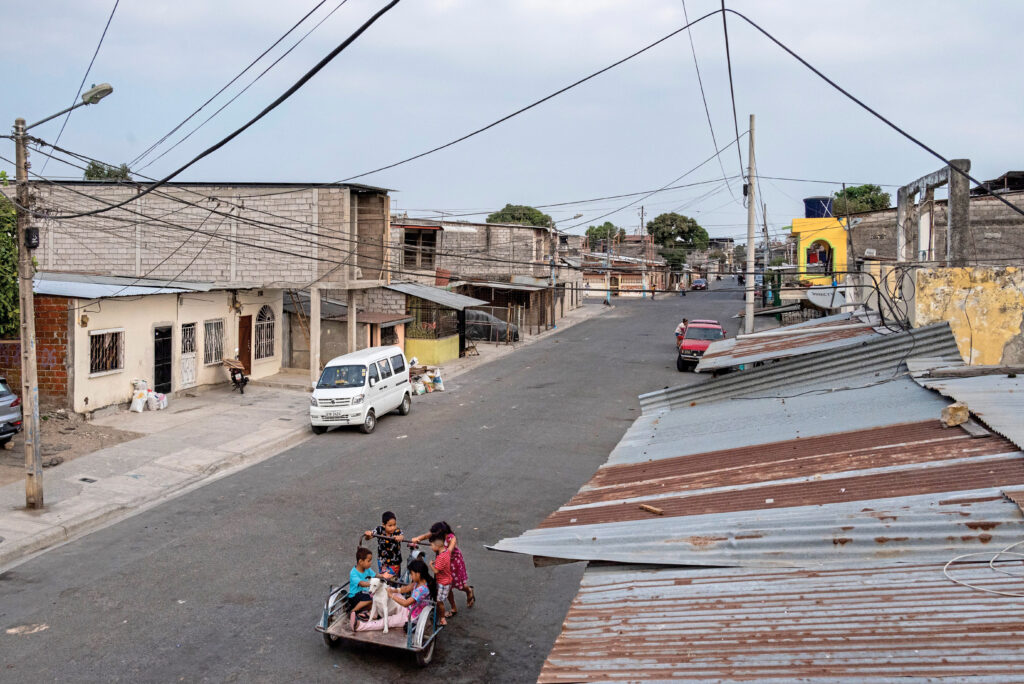
Organized crime has become such a force that a presidential candidate was assassinated just days before an election in August.
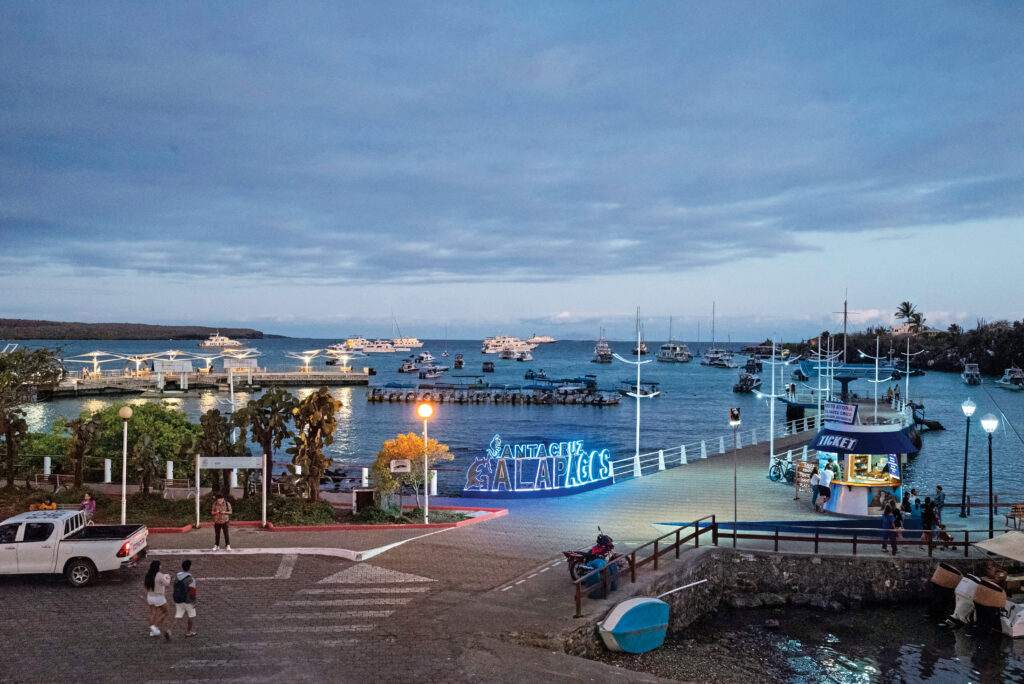
As part of the Galápagos Marine Reserve, a UNESCO World Heritage site, it is a hub for tourism with a population of around 16,000, many of whom lack legal residency.
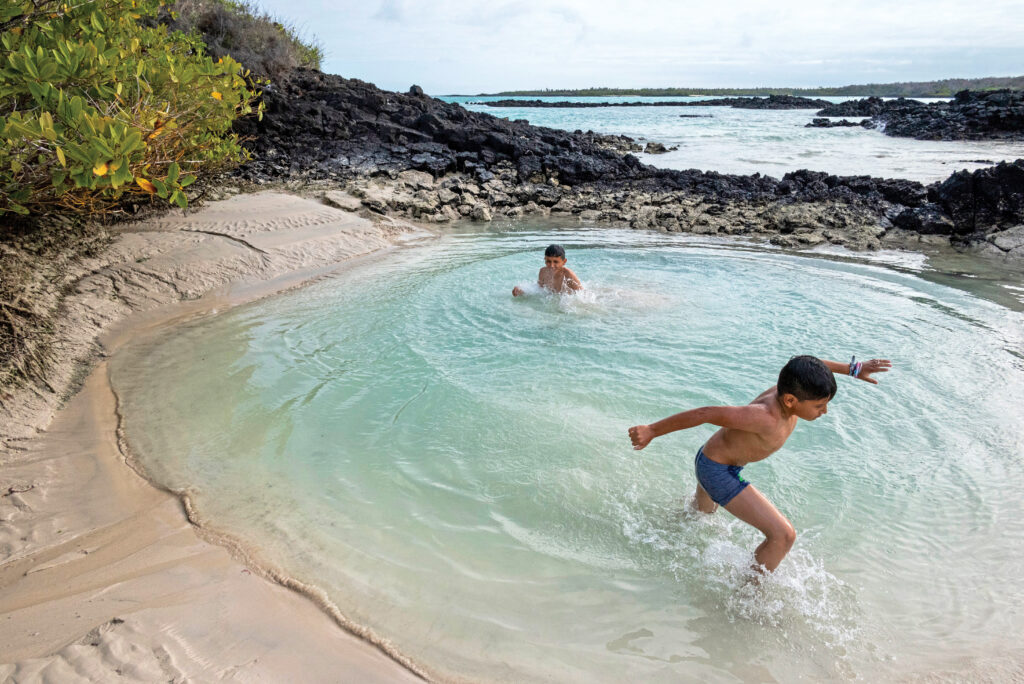
They enjoy a sense of safety and freedom that would be unthinkable in Guayaquil.
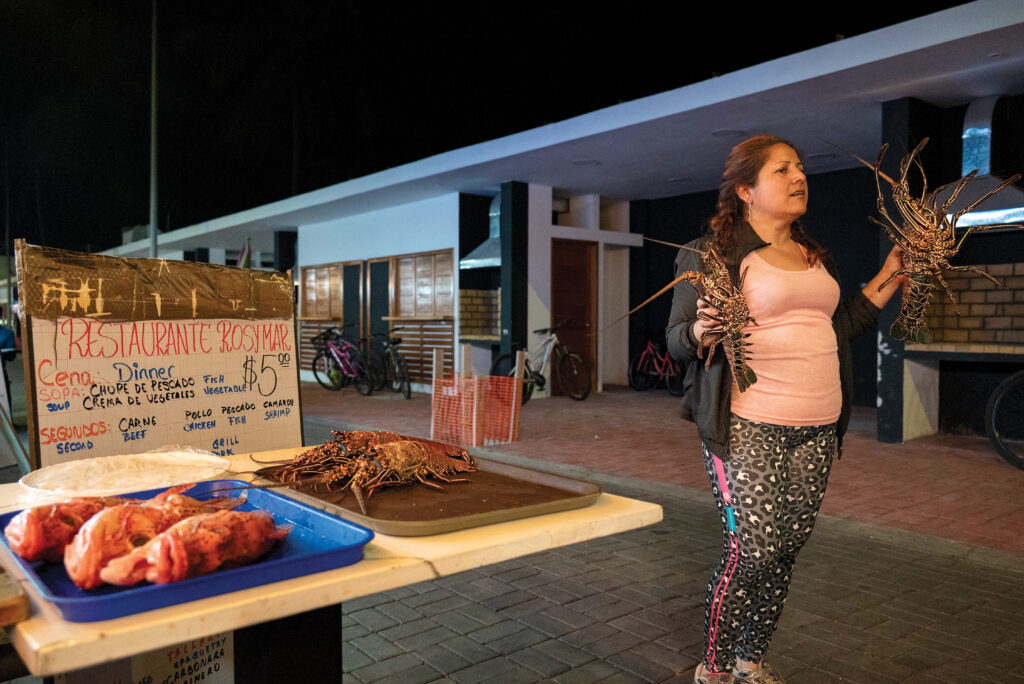
Here, she advertises fresh catches to passersby at the restaurant where she works as a waitress.
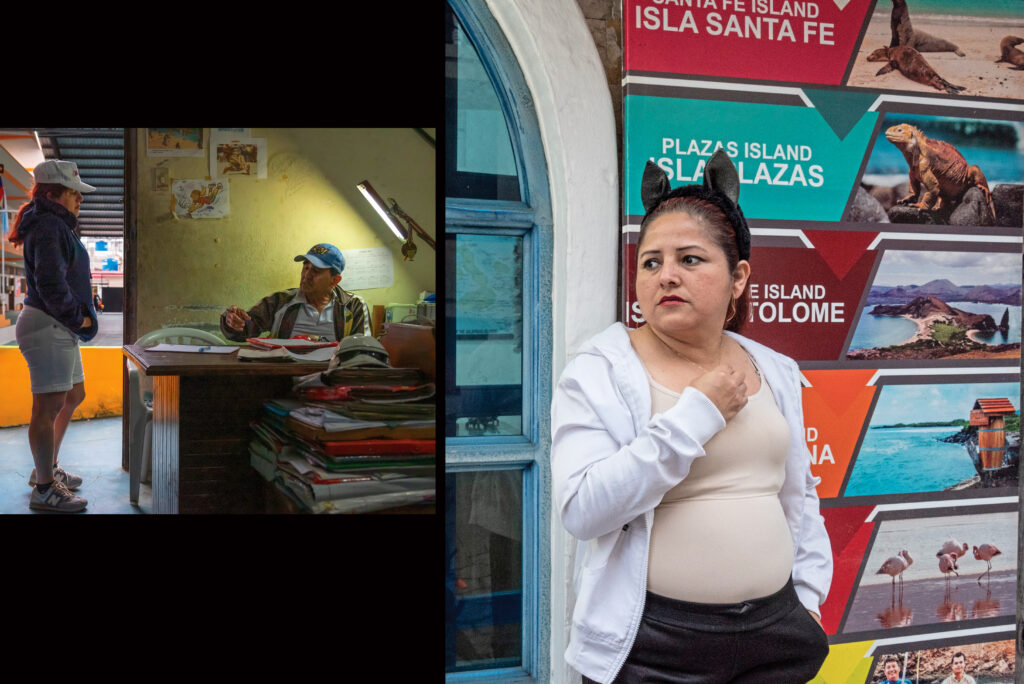
Right: Elvia stands by to attract customers at a travel agency as one of her sons waits inside. She is paid on commission, and sometimes earns nothing during her eight-hour shift. Because she lacks a work permit, she must rely on informal employment without protections.
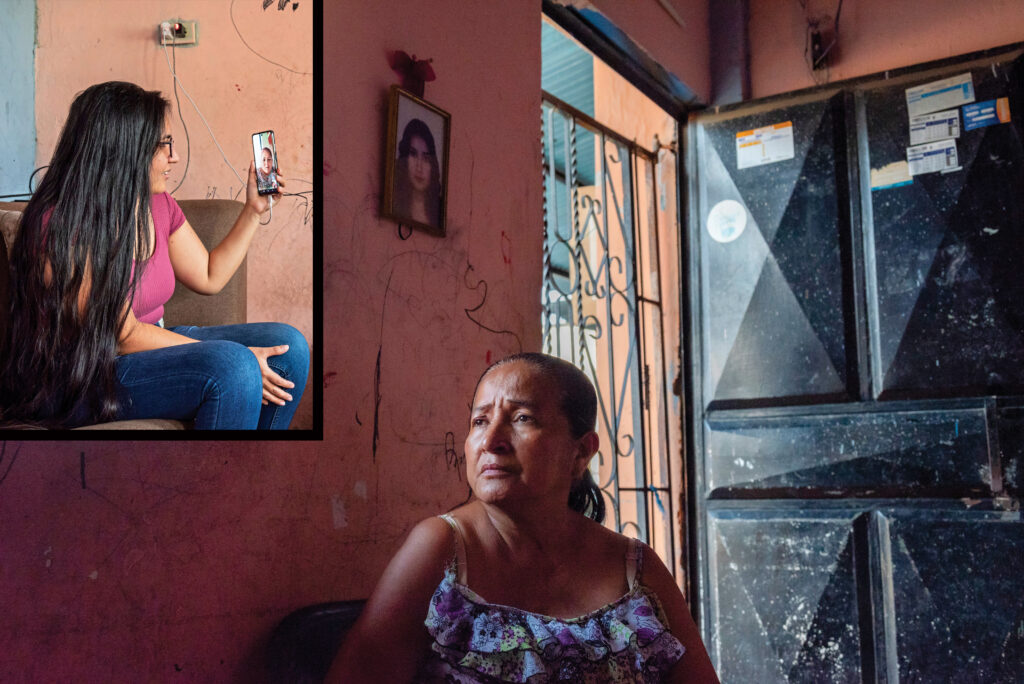
Center: Elvia’s mother, Herminia, in her home in Guayaquil. Herminia doesn’t own a smartphone and can only see Elvia when Karla comes to visit.
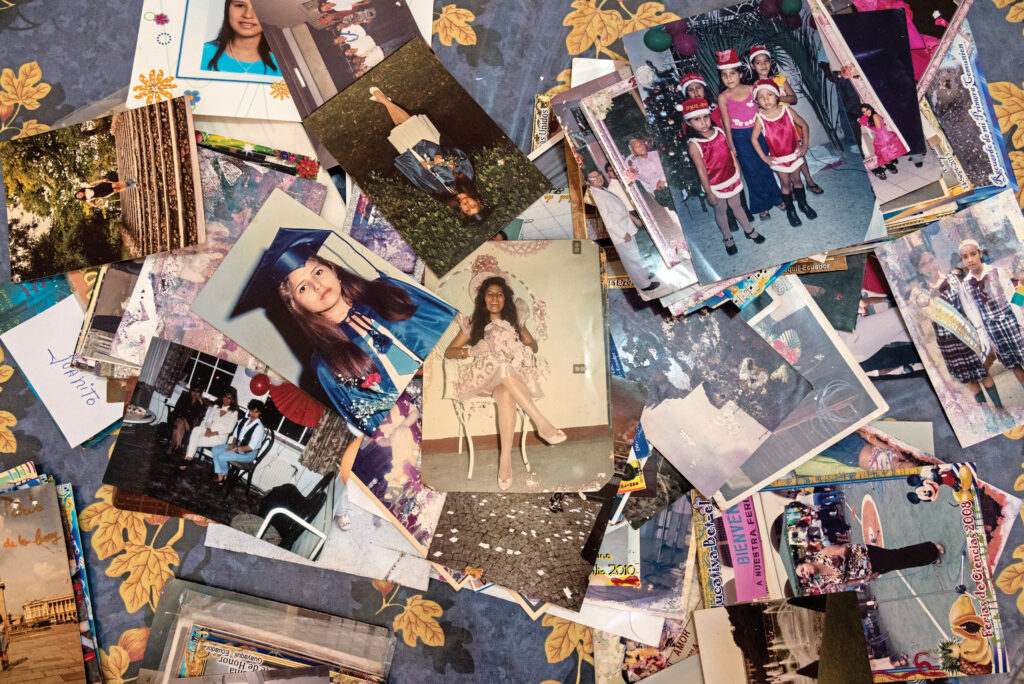
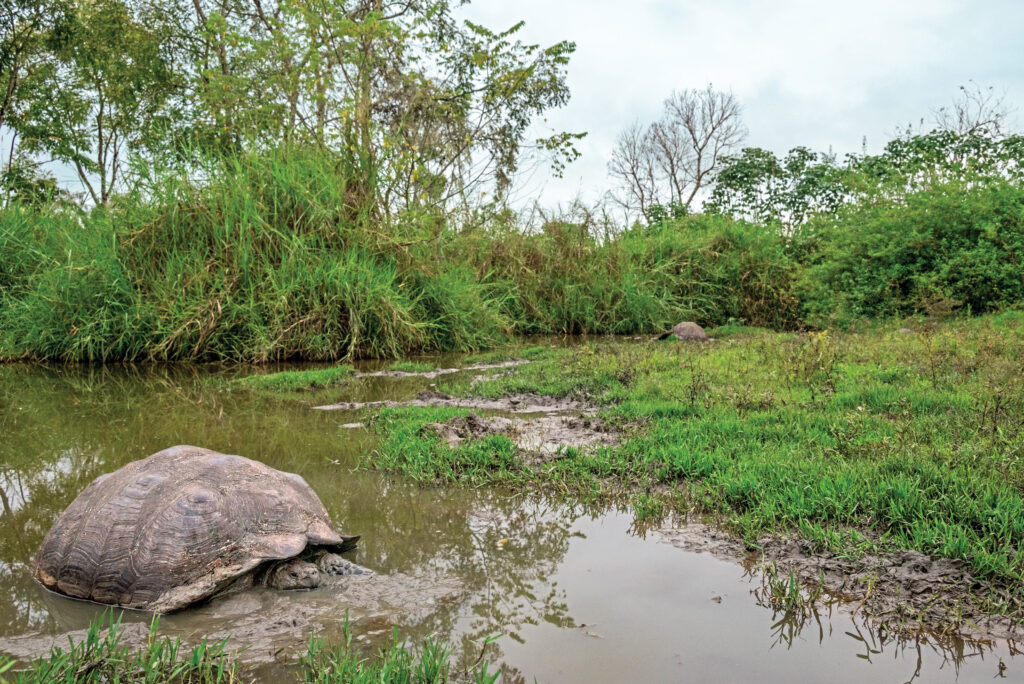
Though Darwin wrote in his journals about riding—and eating—the tortoises, they and all other Galápagos wildlife are today subject to strict protections.
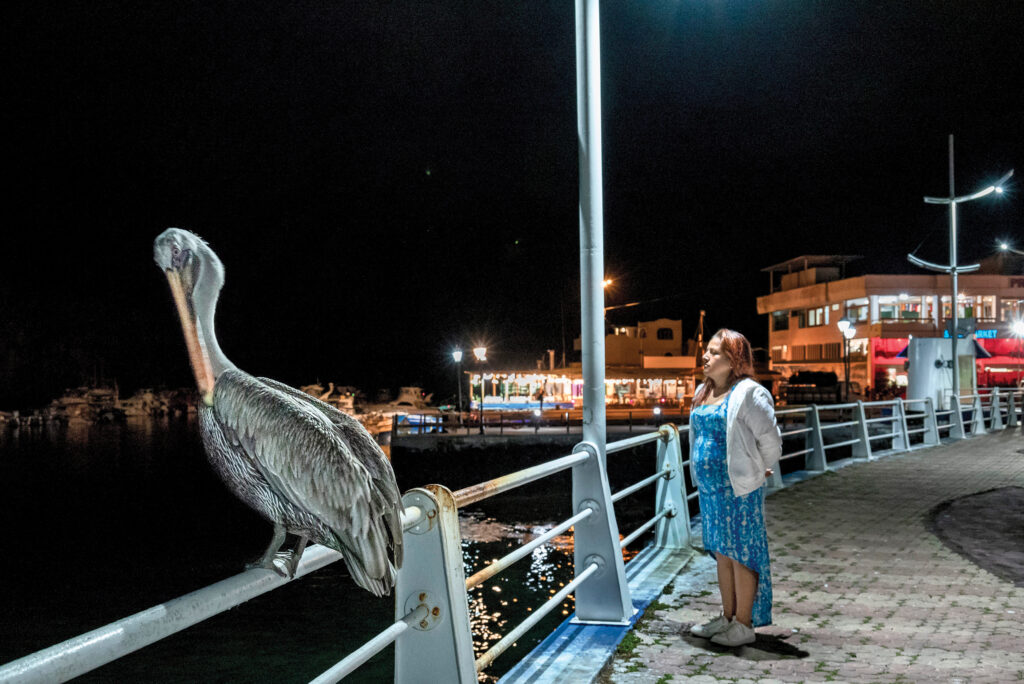
The threat of deportation is ever-present in Elvia’s life—as is the strain of isolation, and the fear of losing her precarious informal work. But she knows this is where she wants her children to grow up.
—
Segalerba is an Italian documentary photographer and storyteller focused on Latin America.
Tags: Ecuador, Galápagos, Migration, Photo Essay


)


